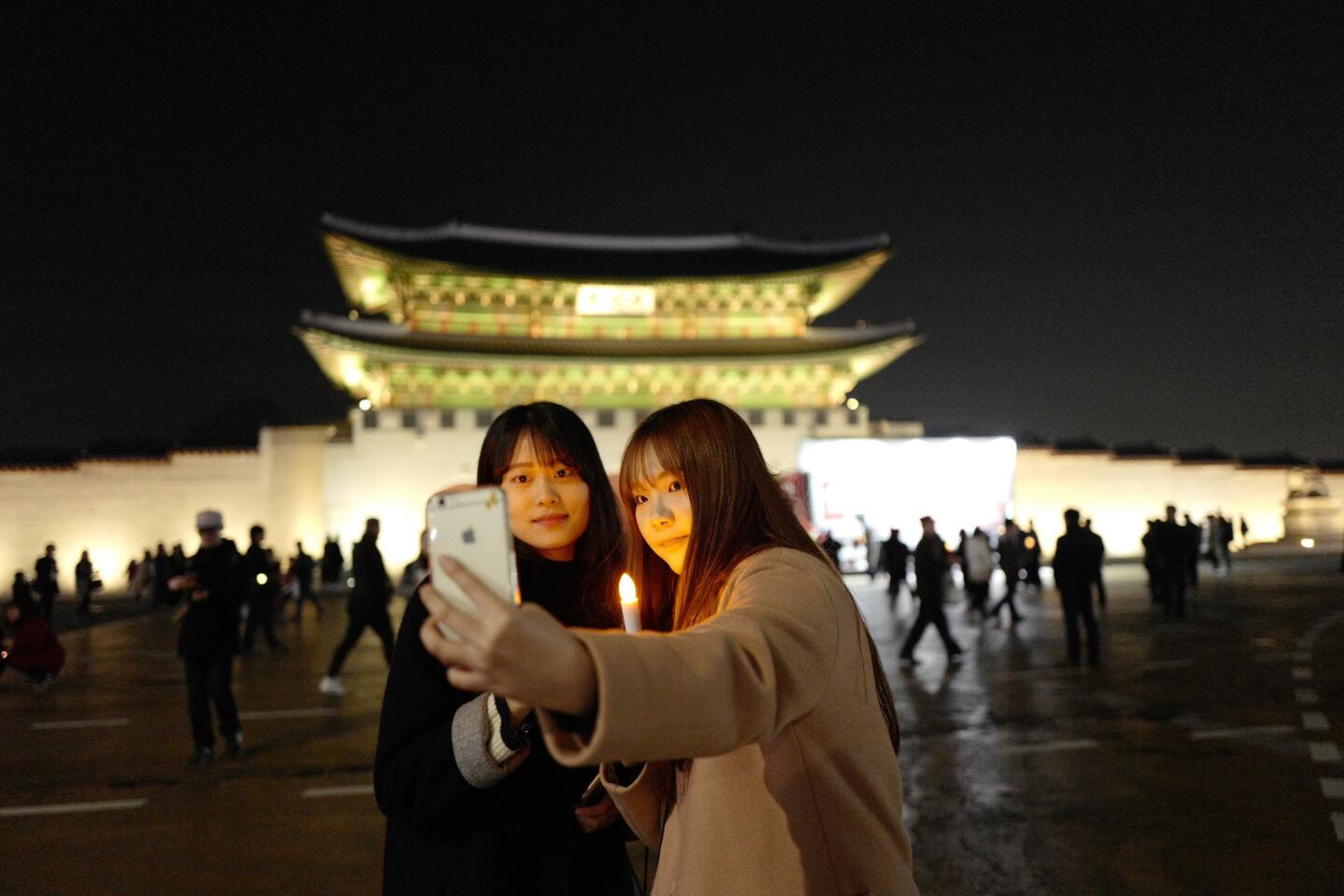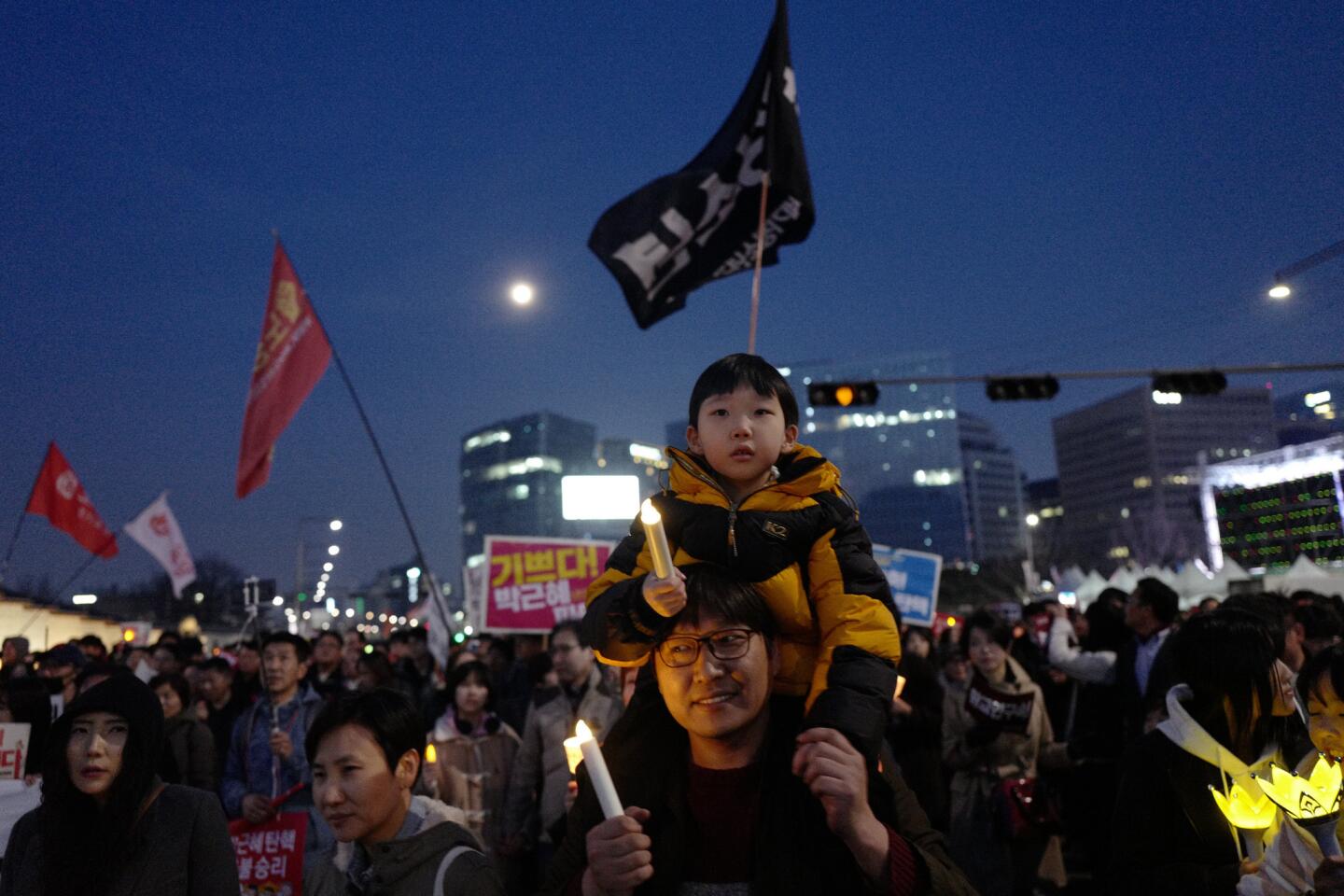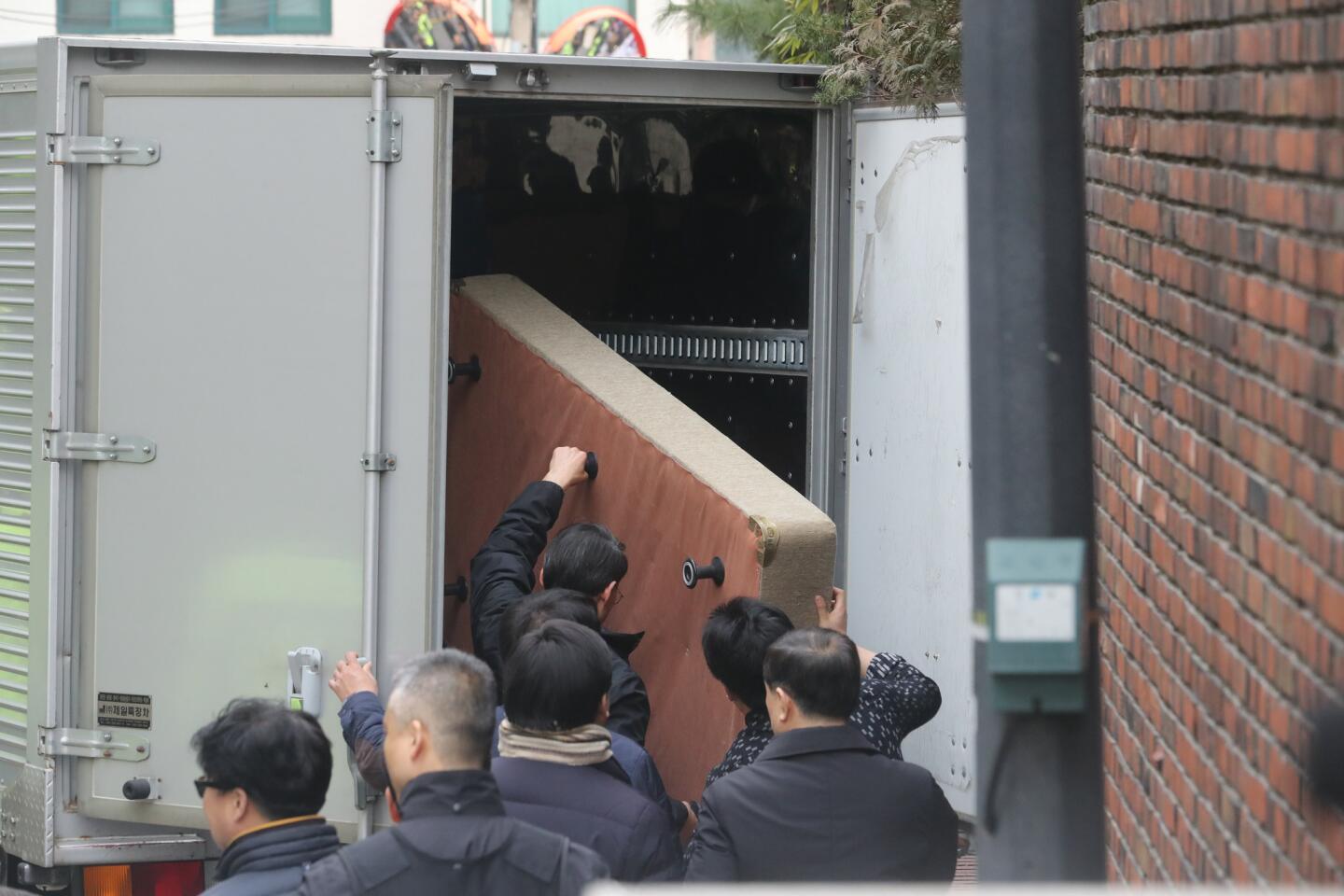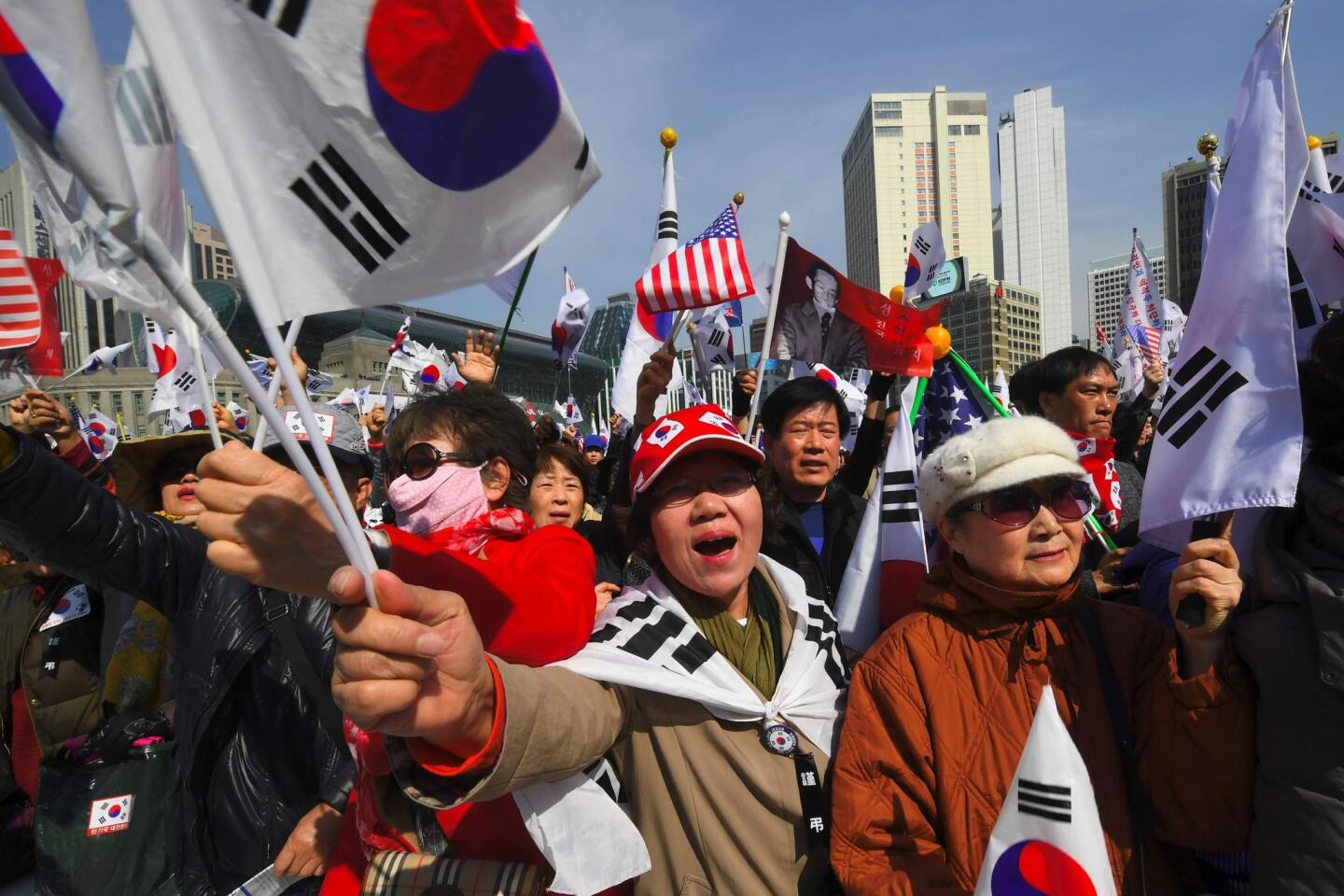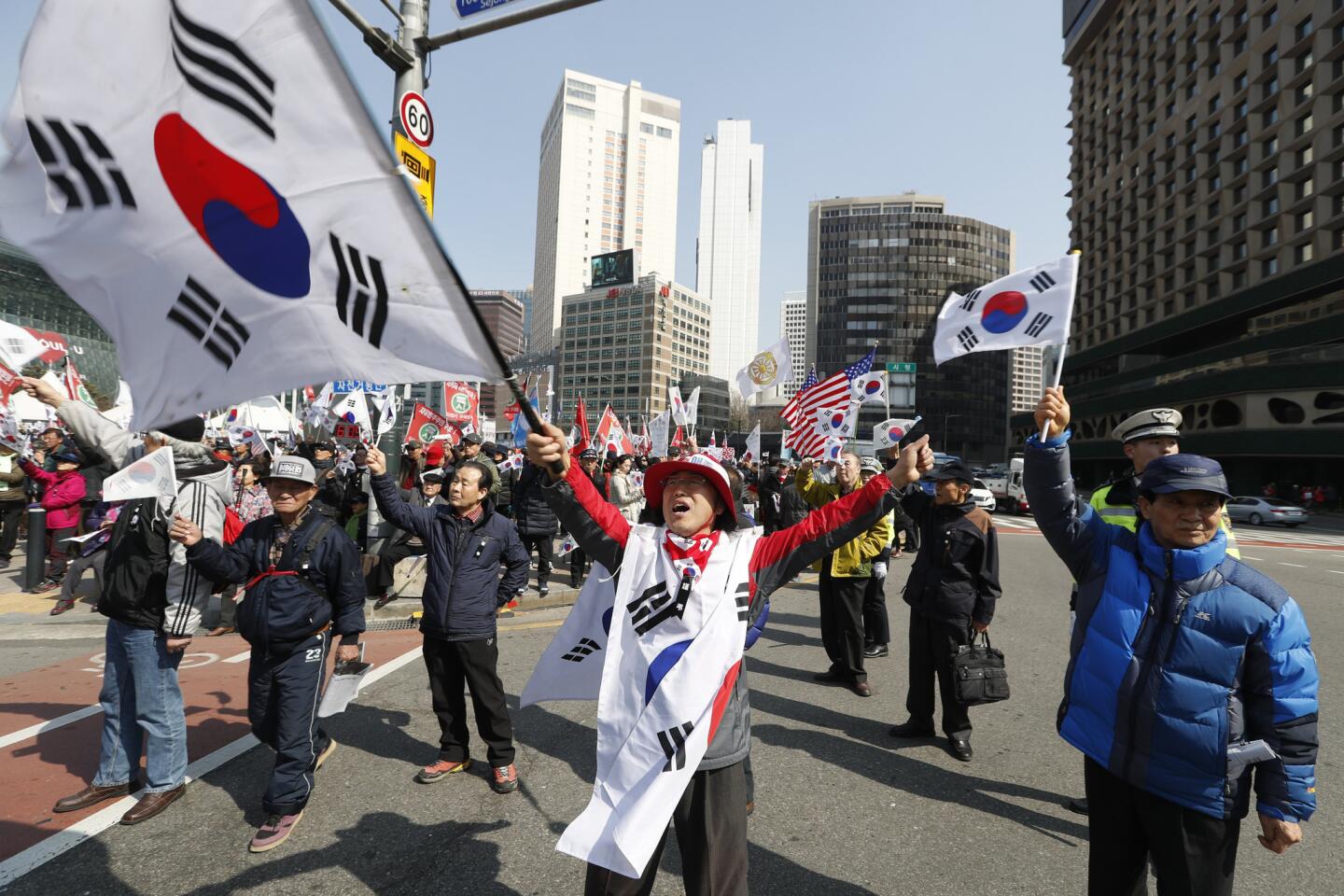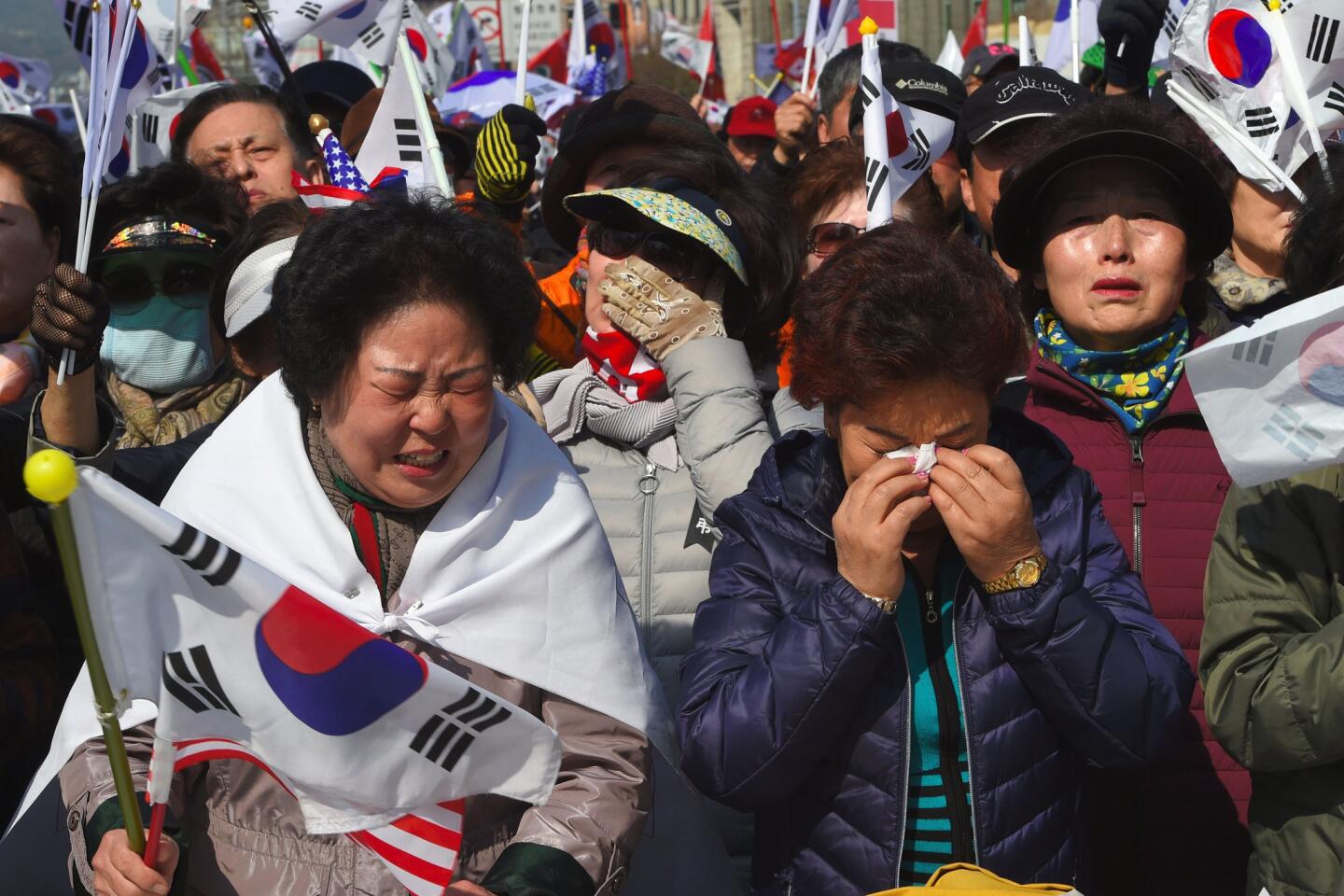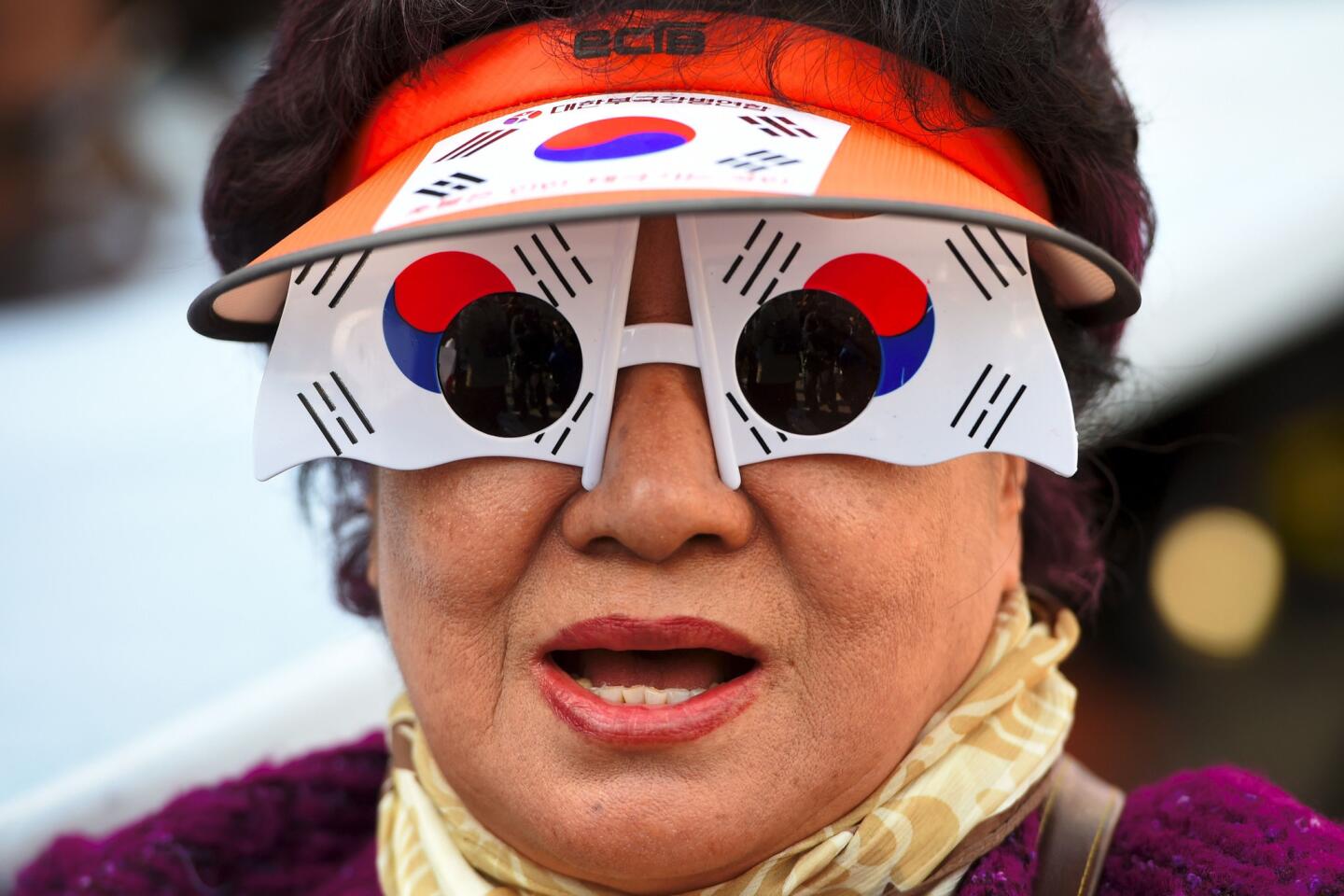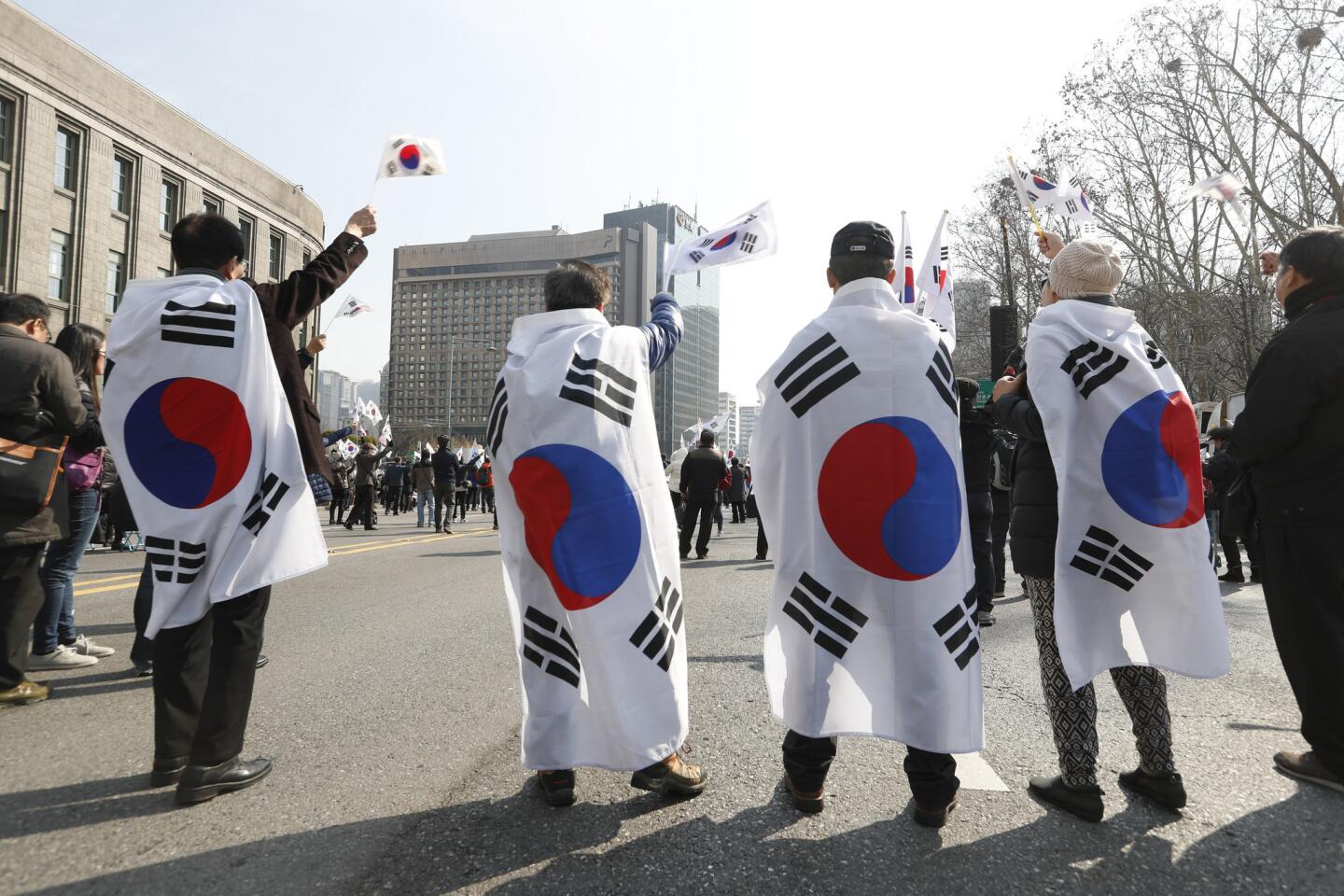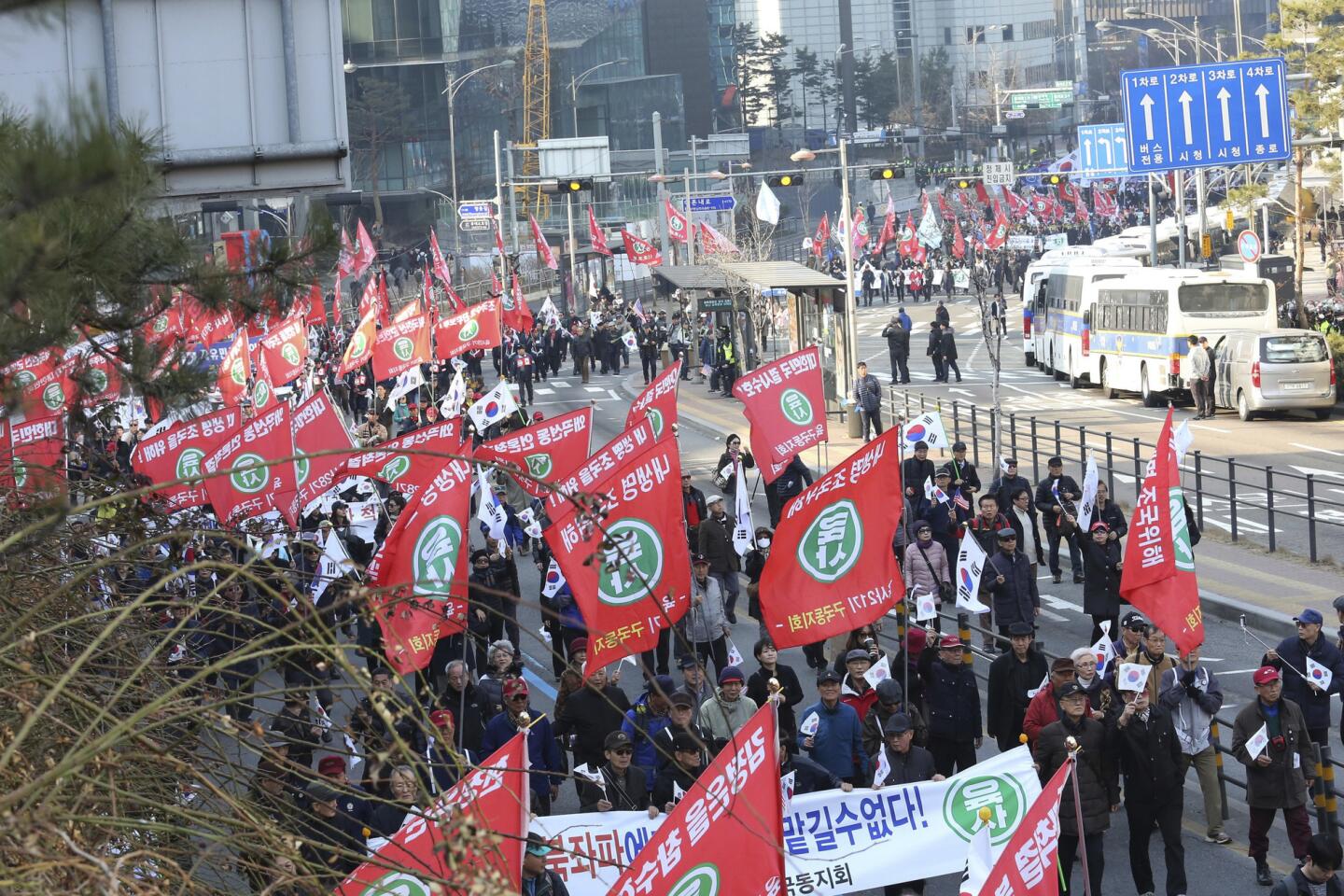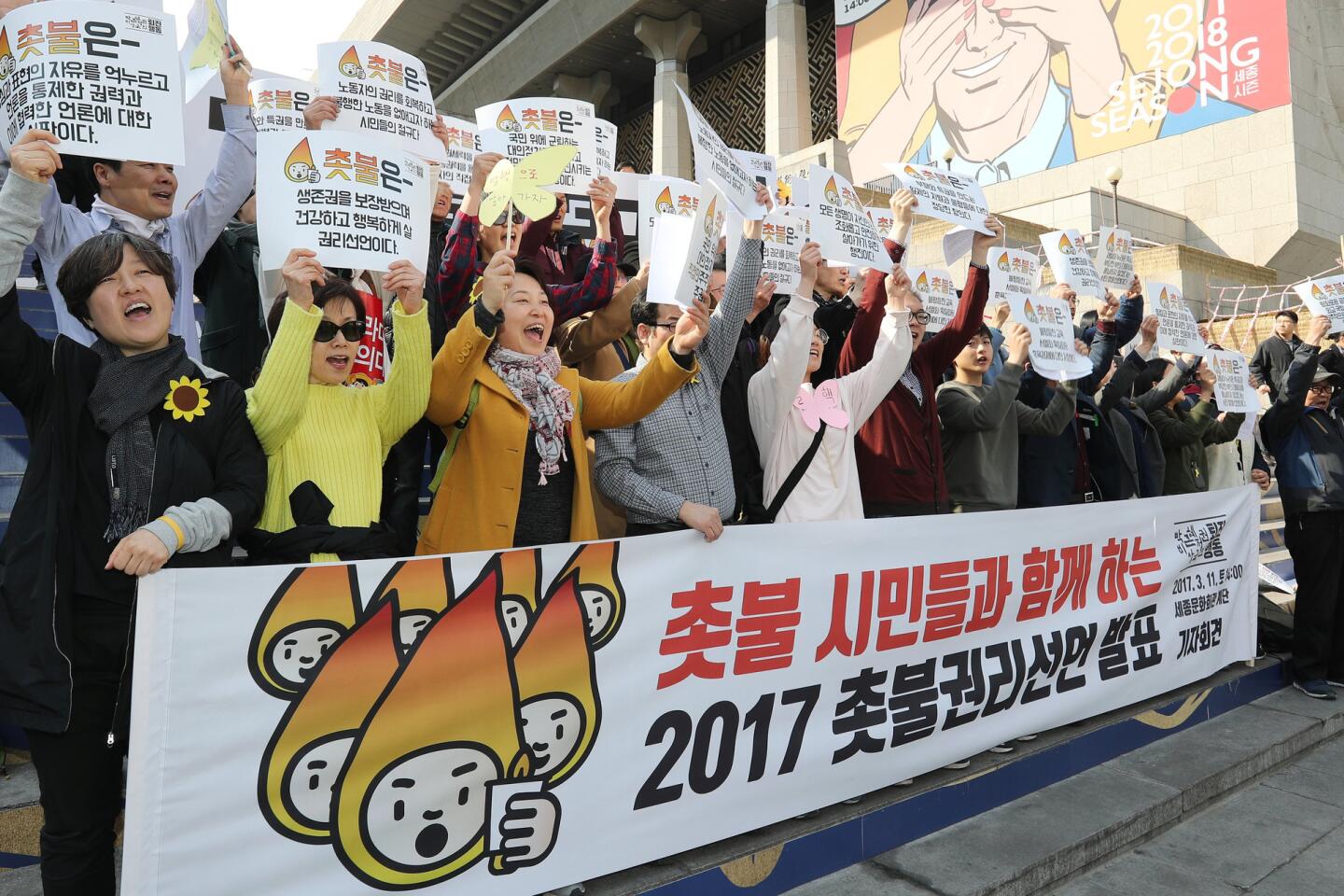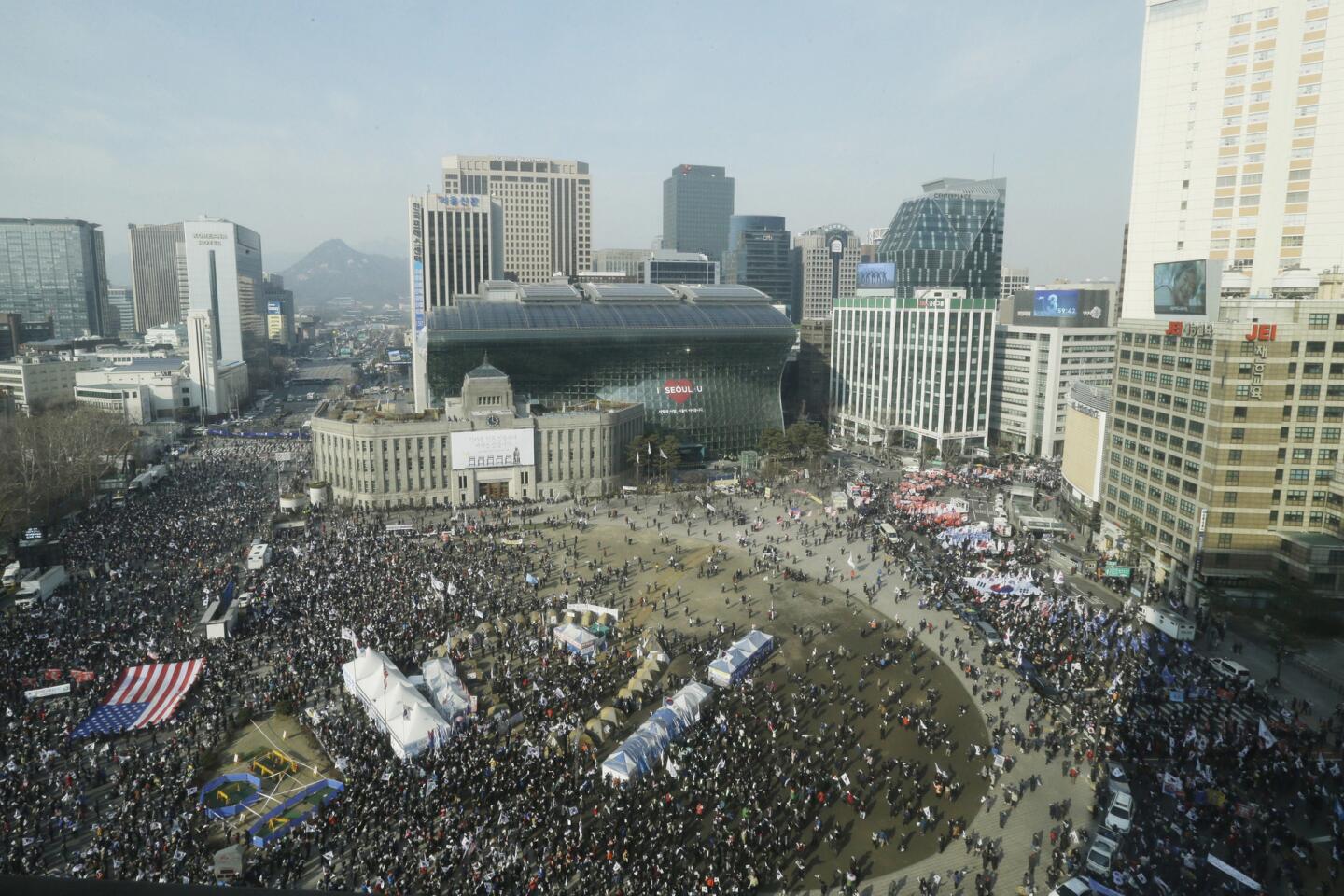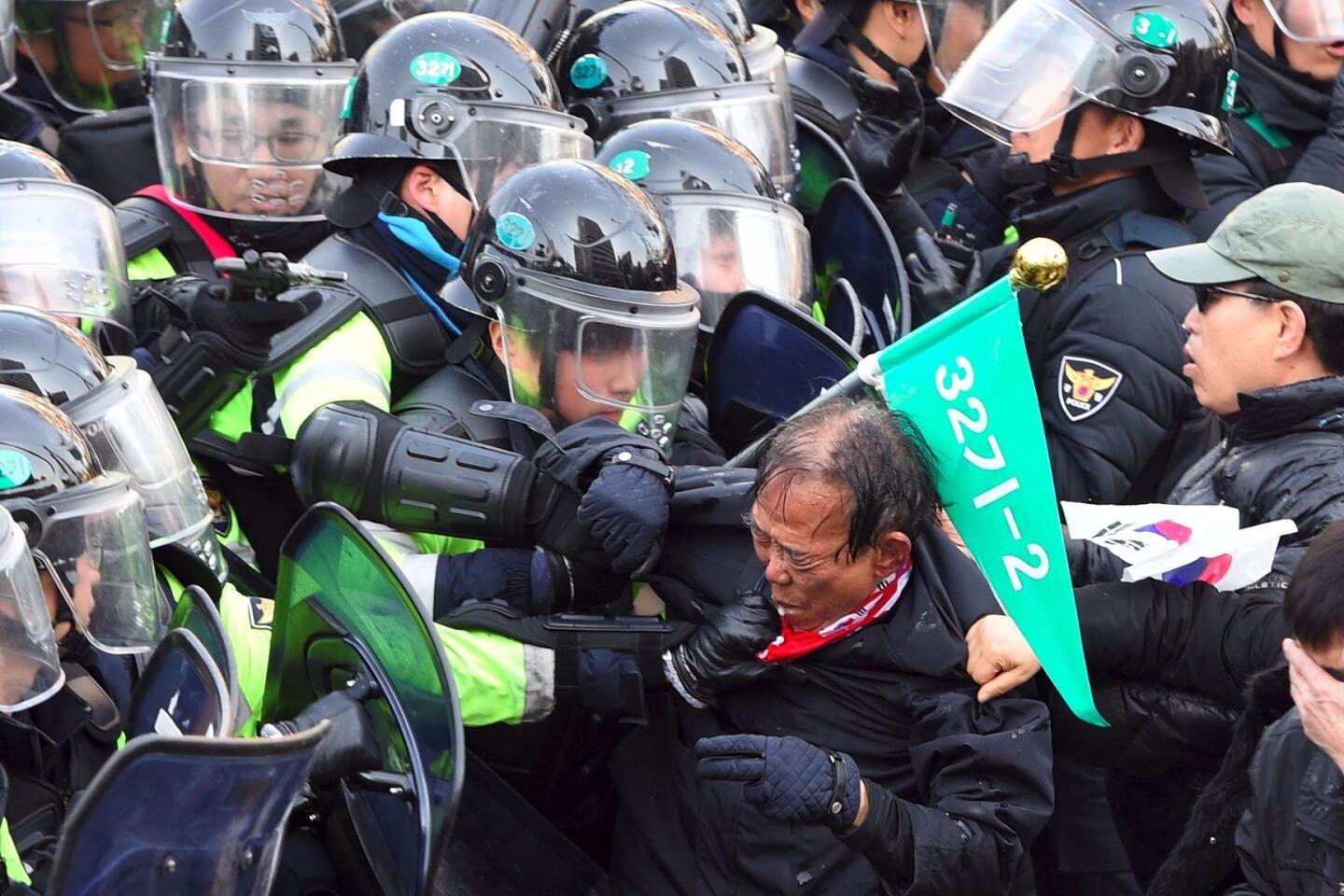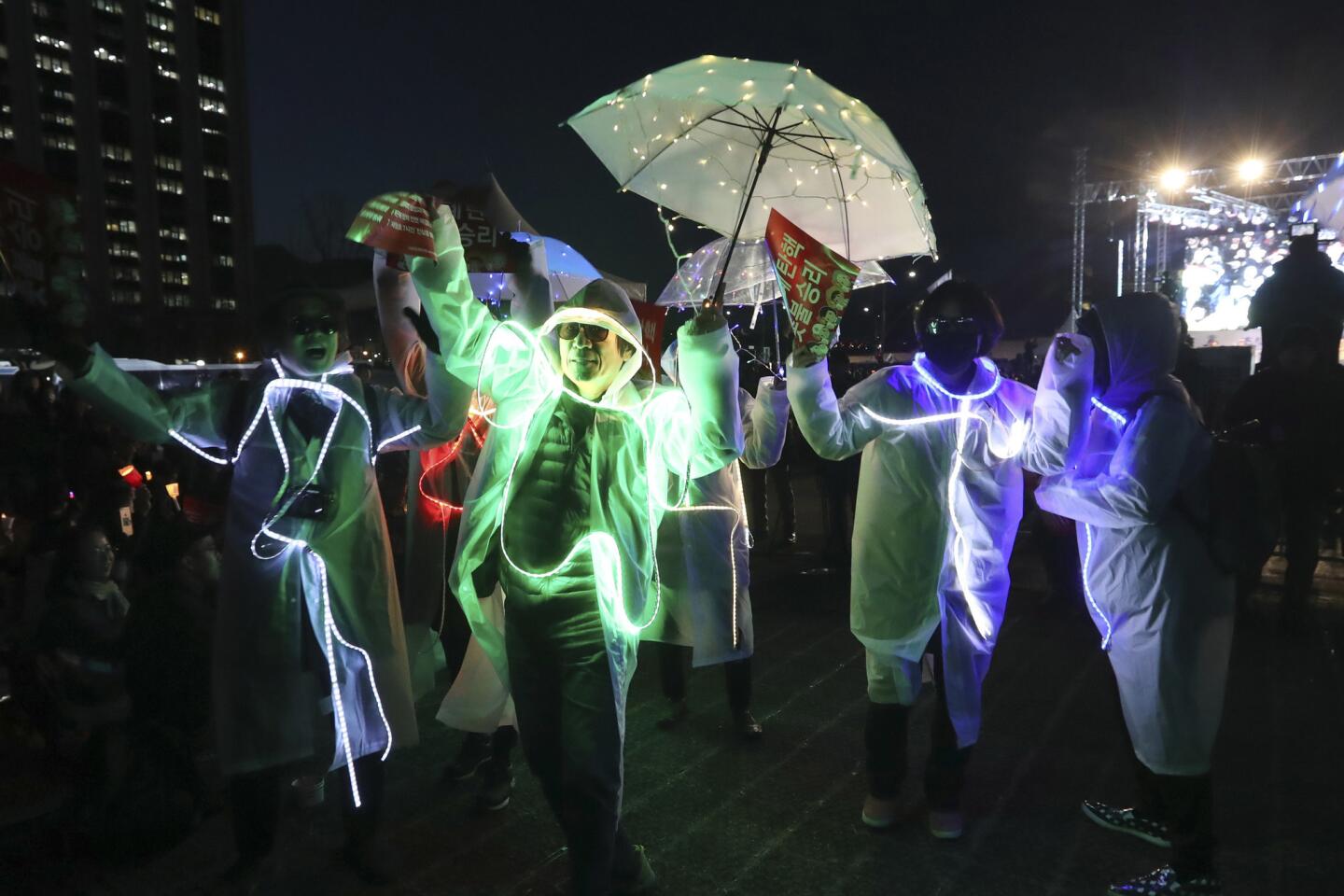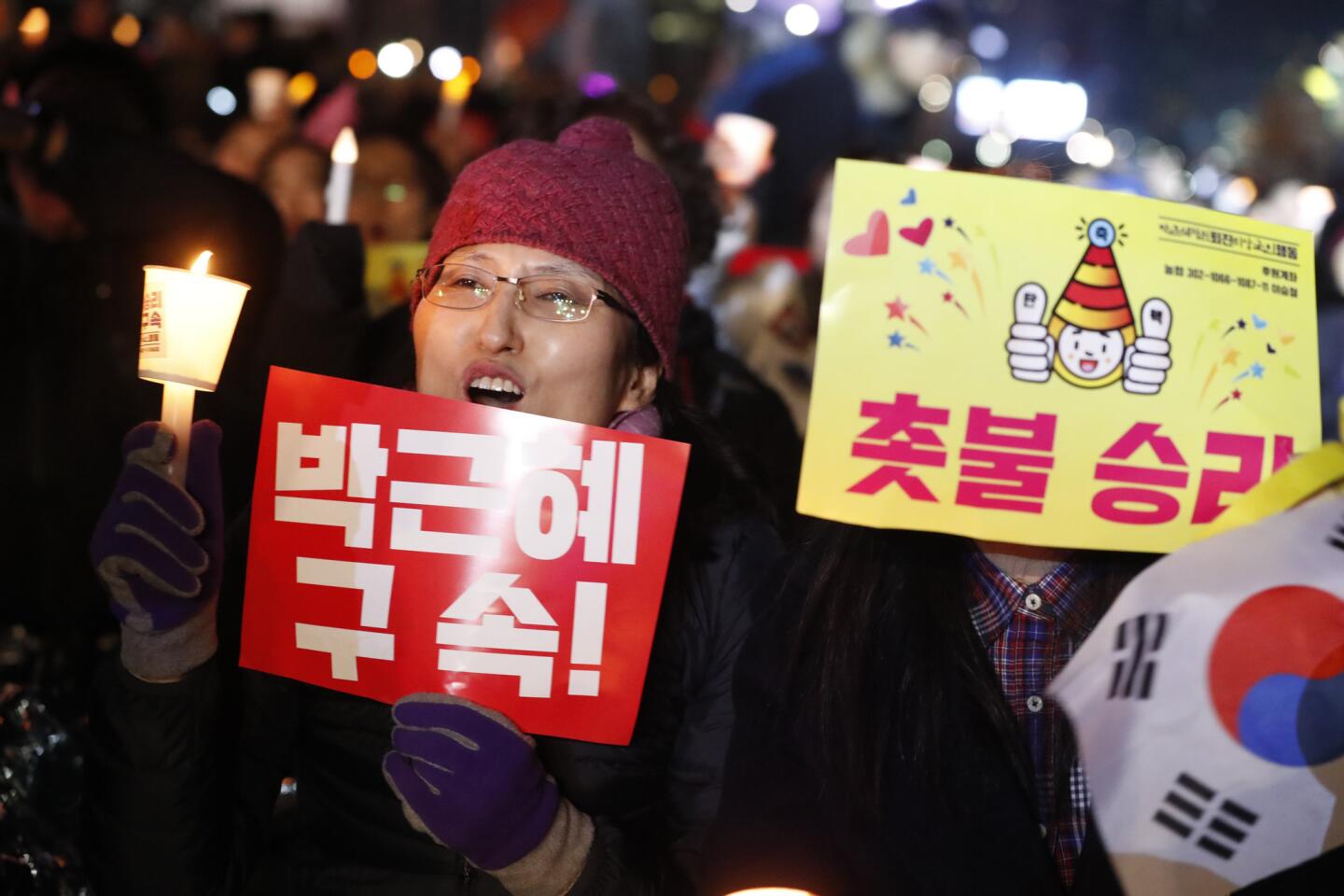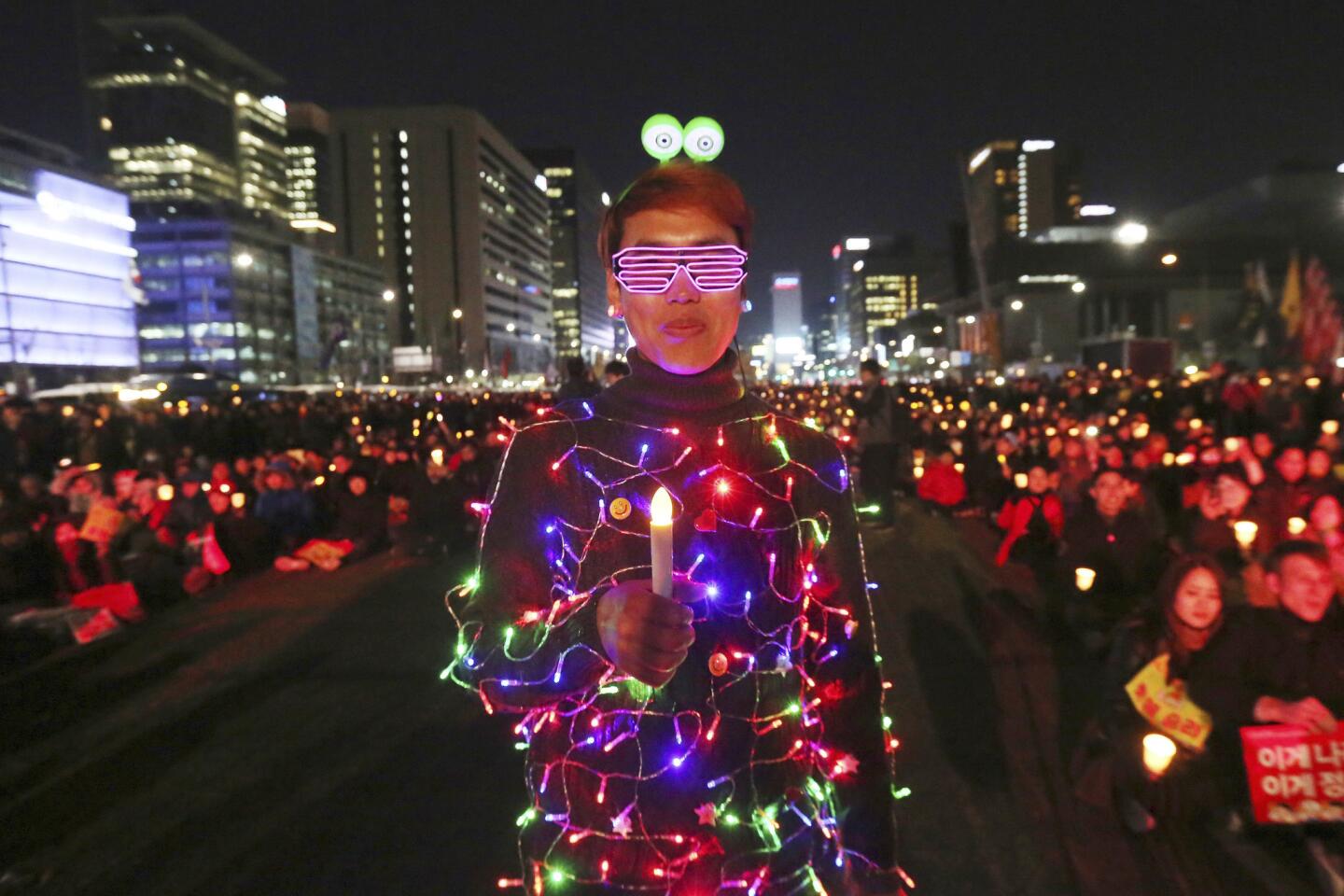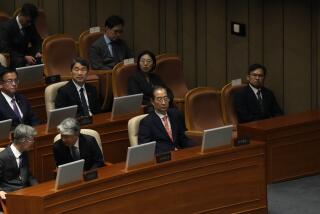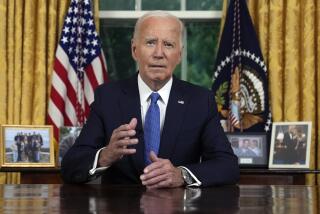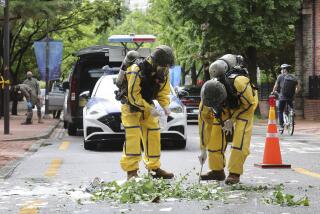South Korea’s ousted leader moves out of palace, apologizes for ‘not fulfilling my duties’
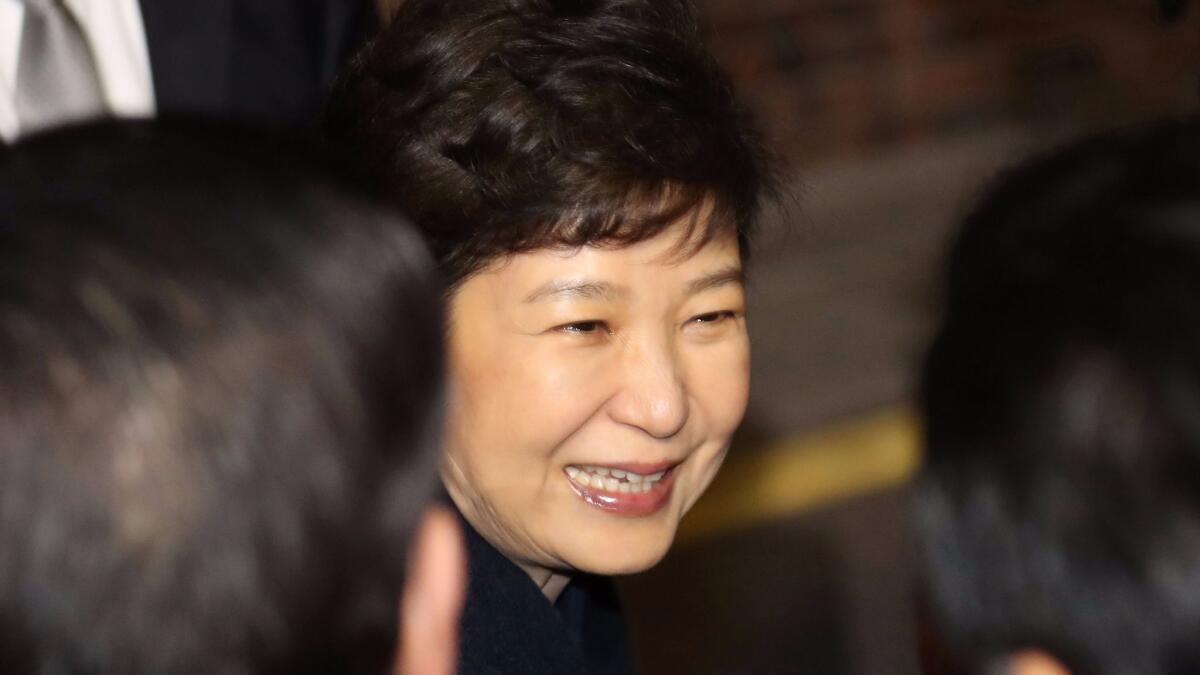
Reporting from SEOUL — Two days after a South Korean court ousted Park Geun-hye from office, the embattled former leader left the presidential residence on Sunday night.
It took more than two days — and national speculation about when the public would get a tangible image that her presidency had ended — before Park vacated the complex, known as the Blue House.
The impeached former president, who hasn’t addressed the public since the court’s action, traveled about eight miles south to this city’s Gangnam district, where she has kept a vacant personal residence over the years.
Park left the presidential complex in a motorcade about 7:20 p.m., cloistered in a black limousine. Twenty minutes later, composed and smiling, Park politely greeted guests and waved to a rowdy crowd of supporters carrying national flags outside her personal residence on a narrow street lined with brick walls.
As she arrived the supporters chanted “daetonglyeong” — “president” in Korean.
Around the same time, Park released a statement through a political spokesman. It was her first public statement since a constitutional court unanimously removed her from office, upholding an impeachment vote by the National Assembly in December.
“I apologize for not fulfilling my duties as president,” the statement read. “I thank people for trusting and protecting me.” She said she would “take full responsibility” for what had happened, but added: “Though it will take time, I believe the truth will be revealed.”
South Korean prosecutors, who recently finished a massive investigation into corruption involving the upper echelons of South Korean politics and business, have alleged that Park became involved in a bribery scheme.
They claim she and a longtime confidant sought payments from Samsung Group, the nation’s largest conglomerate, in exchange for helping to ensure a merger between two of the tech giant’s affiliates.
More than two dozen people have been charged in the sprawling investigation, including several of the president’s aides and the de facto leader of Samsung Group, Lee Jae-yong.
Now that Park no longer enjoys presidential immunity, she too could face charges, many analysts believe.
The timing of Park’s departure from the presidential Blue House — so named for its distinctly colored tiled roof — had been something of a mystery since Friday, after the court’s decision. Questions and intrigue seemed to mount by the hour until her departure.
The ouster by the court immediately stripped Park of the title and trappings of power — and of the expected $10,000 monthly pension she would have received at the end of her term next year. Park, South Korea’s first female president, was also the first removed by impeachment — so the legal framework for her move from the complex was unclear.
Park’s aides and security officials presumably needed time to secure her private residence and allow protesters to clear central Seoul to allow safe travel. But her aides have remained circumspect about the plans, at least to foreign reporters.
Before leaving, Park’s former foreign media spokesman, D.J. Kim, said she said goodbye to hundreds of presidential staffers from her office. About an hour before, she had a brief meeting over tea with her senior aides, he said.
The images of the former president leaving the complex as a private citizen were surely heartening to many of her critics.
The ruling set off a wave of reaction across South Korea among the millions of people who had sought her ouster during massive Saturday street rallies, week after week, since last fall. Those continued over the weekend, including a fireworks display.
While many people peacefully marched in favor of Park’s removal, the former president also had her supporters. Their numbers were smaller, both on the streets and in opinion surveys, throughout the controversy.
They reacted to the news on Friday in some cases with violence, trying to smash through police barricades and tip police buses, among other aggressive actions. One smashed a metal ladder on the head of a news photographer. Three people died in the immediate aftermath of the decision, though the details of the incidents were still murky.
Hundreds of Park’s supporters lined the streets outside her private home on Sunday night, shouting insults at the assembled media seeking to document her return. They raised large South Korean flags in an attempt to block cameras from recording the former president’s arrival.
Some viewed her removal Friday more soberly.
Mina Kim, 51, who lives in the Seoul suburbs and described herself as a stay-at-home mom, said the president’s fall didn’t bring her joy or despair — but rather made her proud that her country’s relatively young democracy responded to the will of the people.
“For me the news made me feel a sense of responsibility,” said Kim, who attended at least one of the recent rallies. “I should accept the situation with humility, taking the decisions of the younger generation seriously, and participate more actively so that this doesn’t occur again.”
Stiles is a special correspondent.
ALSO
North Korea bars Malaysians from leaving the country, and Malaysia strikes back
India’s Narendra Modi leads his party to victory in a state with more than 200 million people
Bone by bone, Iraqis unearth a mass grave: ‘We will be out there digging until no one is left’
UPDATES:
9:20 a.m.: Updates throughout with staff reporting.
4:20 a.m.: Updated with Park’s statement.
This article was first published at 4 a.m.
More to Read
Sign up for Essential California
The most important California stories and recommendations in your inbox every morning.
You may occasionally receive promotional content from the Los Angeles Times.
